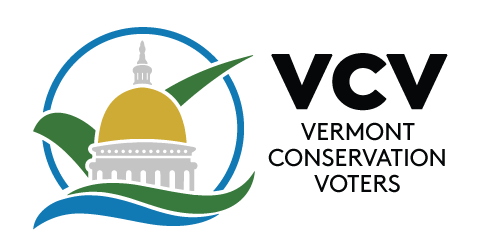Vermont firefighters, educators, public health and children’s advocates, businesses, and environmental groups urge you to vote to support S.20 to ban PFAS and other toxic chemicals from consumer products and firefighting foam.
PFAS chemicals are linked to harmful health impacts including high blood pressure, thyroid disease, kidney and testicular cancers, and suppressed immune system function. To make matters worse, PFAS contamination might worsen the impacts of Covid-19, according to recent scientific studies. Harm to the immune system due to PFAS exposure has broad ranging effects, from reduced ability to fight off viral infections to reduced responsiveness to vaccines.
Despite the harm they cause, PFAS chemicals continue to be used in a variety of products imported into Vermont, exposing the people who use those products. PFAS chemicals present further threats when those items are disposed of and chemicals leach into our water. We can and must take immediate action to stop bringing more PFAS-containing products into the state.
S.20 also takes steps to restrict ortho-phthalates and authorize potential restrictions on bisphenol chemicals in food packaging. Phthalates are used to make plastics more flexible, as solvents, and for other purposes. Studies show they migrate out of products and packaging, and have been found in food. Exposure to phthalates is linked to a range of serious health issues, including behavioral issues and lower IQ, reproductive system defects, and more. Bisphenols are chemicals commonly found in plastics, including food and beverage can linings. Bisphenols like BPA are known to mimic estrogen and in studies have been linked to reproductive harm, increased cancer susceptibility, and abnormalities in brain development and fat metabolism.
S.20 targets five different areas of consumer products that are major sources of PFAS and other toxic chemical exposure and environmental contamination: food packaging, firefighting foam, residential carpets and rugs, ski wax, and children’s products.
Firefighting Foam
This bill restricts PFAS from Class-B Firefighting Foams. The PFAS-free foam market is well-established, cost competitive, and effective at fighting fires. Eight other states have already enacted similar bans on PFAS-containing foam. Passing S.20 will put Vermont in line with other states and will allow us to ensure our firefighters and residents are protected by reducing the use of harmful and unnecessary PFAS chemicals in firefighting foam. S.20 also requires reporting of PFAS in firefighting gear.
Food Packaging
The bill bans PFAS and ortho-phthalates from food packaging, and authorizes potential restrictions on bisphenol chemicals. This policy builds on legislation already enacted in Washington, Maine, and New York. Single-use food containers are often treated with PFAS to make them resistant to water and grease. Phthalates and bisphenols are added to plastics. These chemicals can migrate from food packaging into food, and from food into our bodies. There are safer alternatives to these chemicals in food packaging that are readily available, and major grocery chains and retailers are proactively banning these harmful chemicals from the food packaging they sell, demonstrating the availability of safer, cost-competitive alternatives.
Carpets and Rugs
The bill also bans PFAS from residential carpets and rugs, as well as after-market treatment to carpets and rugs. These chemicals are entirely unnecessary in our carpets and rugs – they are only added for certain stain-resistant properties. Unfortunately, these chemicals find their way into dust and air in our homes and ultimately into our bodies – posing a particular exposure risk to young children who spend a lot of time playing on rugs and carpets. PFAS-containing rugs and carpets are then disposed of in our landfills. An Agency of Natural Resources report found carpets to be a major contributor to PFAS chemicals going into Vermont’s landfill, which results in PFAS-contaminated leachate. Home Depot and Lowe’s (the two largest home improvement retailers) already banned the sale of residential rugs and carpets with PFAS chemicals from their stores, which shows the widespread availability of cost-competitive PFAS-free alternatives.
Ski Wax
Some high-end wax applied for Nordic ski racing contain PFAS chemicals. Studies have shown these waxes can contaminate the surrounding environment. Several water systems with high levels of PFAS, tested as a result of Act 21, were located in ski areas. Intercollegiate Nordic ski teams in the East have banned PFAS-wax from their races, and the FIS, the sport’s international governing body, which oversees Nordic skiing’s World Cup, announced in November 2019 that it will begin enforcing a ban on the wax. The retailer REI recently announced they will be banning PFAS from ski wax.
Chemicals of High Concern to Children
Finally, this bill adds 3 PFAS chemicals to the Act 188 list of Chemicals of High Concern to Children. These three PFAS chemicals are already being regulated in Vermonters’ drinking water. The addition of these PFAS chemicals to this list will simply require reporting the use of these chemicals by manufacturers if they are being used in children’s products sold in Vermont. This will help us understand where and how these PFAS chemicals are being used in our children’s products.
We urge you to support S.20 because it takes important steps to turn off the tap of more toxic chemicals – particularly PFAS – coming into Vermont. These chemicals harm our people and contaminate our environment. During this public health crisis, it’s more important than ever to take reasonable steps like this to better protect Vermonters’ health.
Thank you for your consideration.
Sincerely,
Jen Duggan, Vice President and Director, Conservation Law Foundation
Bradley Reed, President, Professional Fire Fighters of Vermont
Lauren Hierl, Executive Director, Vermont Conservation Voters
Paul Burns, Executive Director, Vermont Public Interest Research Group
Brian Shupe, Executive Director, Vermont Natural Resources Council
Lucy Leriche, Vice President, Planned Parenthood of Northern New England
Colin Robinson, Political Director, Vermont – NEA
Michelle Fay, Executive Director, Voices for Vermont’s Children
Martin Wolf, Director of Sustainability & Authenticity, Seventh Generation
Roxanne Vought, Executive Director, Vermont Businesses for Social Responsibility
